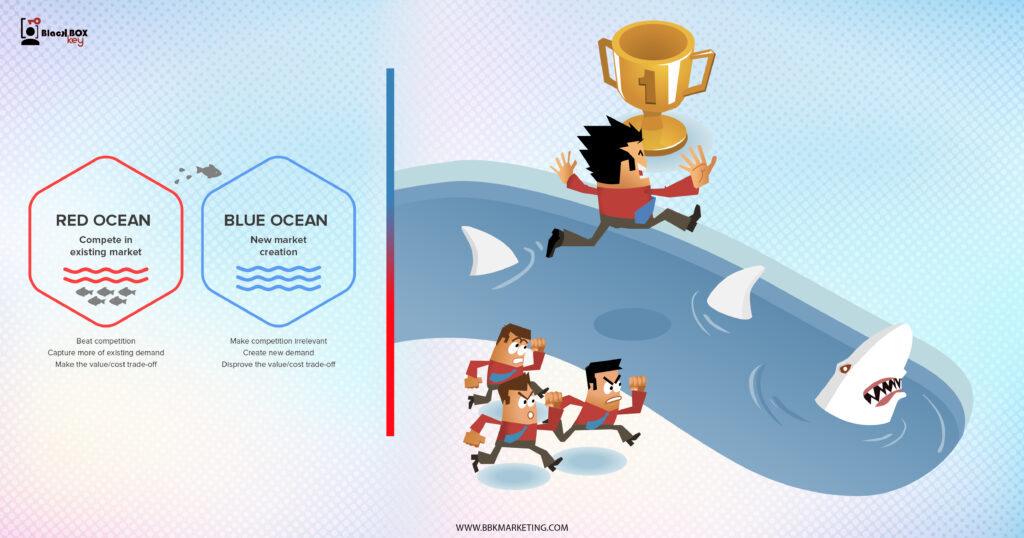If it feels like Google search is changing faster than ever, it’s not your imagination. Google reported an astonishing 4,367 “launches” in 2021, up dramatically from 350-400 in 2009. On average, that’s nearly a dozen changes per day.
Many of these more than 25,000 changes were undoubtedly very small, but some were outright cataclysmic. What can we learn from nine years of Google rankings data, and how can it help us prepare for the future?
Thanks to our MozCast research project, we have daily algorithm flux data going back to 2014. The visualization below shows nine full years of daily Google “temperatures” (with hotter days representing more movement on page one of rankings):
Click on the image for the full-size view!
While 2022 was certainly hotter than 2014, the pattern of rising temperatures over time is much more complicated than that. In some cases, we can’t map temperatures directly to algorithm updates, and in others, there are known causes outside of Google’s control.
Take, for example, the WHO declaration of the global COVID-19 pandemic on March 11, 2020 (#8 in the labeled events). COVID-19 changed consumer behavior dramatically in the following months, including huge shifts in e-commerce as brick-and-mortar businesses shut down. While it’s likely that Google launched algorithm updates to respond to these changes, COVID-19 itself reshaped global behavior and search rankings along with it.
The summer of 2017 is an entirely different story, with unexplained algorithm flux that lasted for months. Truthfully, we still don’t really know what happened. One possibility is that Google’s Mobile-first index update caused large shifts in rankings as it was being tested in the year or more preceding the official launch, but at this point we can only speculate.
While some of the hottest confirmed days on Google from 2014-2022 were named updates, such as the “core” updates, there are a few interesting exceptions …
The hottest day on record in MozCast was a major outage in August of 2022 that measured a whopping 124°F. While this corresponded with an electrical fire in an Iowa-based Google data center, Google officially said that the two events were unrelated.
The 8th and 10th hottest confirmed days over these nine years were serious bugs in the Google index that resulted in pages being dropped from the search results. Our analysis in April of 2019 measured about 4% of pages in our data set disappearing from search. Thankfully, these events were short-lived, but it goes to show that not all changes are meaningful or actionable.
The largest search penalty on record was the “Intrustive Interstitial Penalty” in January of 2017, that punished sites with aggressive popups and overlays that disrupted the user experience.
If we’re talking about named updates, the highest-temperature (i.e. largest impact) was actually a penalty-reversal, phase 2 of the Penguin 4.0 update in October of 2016. Phase 2 removed all previous Penguin penalties, an unprecedented (and, so far, unrepeated) move on Google’s part, and a seismic algorithmic event.
Keep in mind, this was just the impact of undoing Penguin. If we factor in the 7+ major, named Penguin updates (and possibly dozens of smaller updates and data refreshes), then Penguin is the clear winner among the thousands of changes from 2014-2022.
Ultimately, Google’s “weather” isn’t a natural phenomenon — it’s driven by human choices, and, occasionally, human mistakes. While we can’t predict future changes, we can try to learn from the patterns of the past and read between the lines of Google’s messaging.
As machine learning drives more of Google search (and Bing’s recent launch of ChatGPT capabilities will only accelerate this), the signals from Google will likely become less and less clear, but the themes of the next few years will probably be familiar.
Google wants content that is valuable for searchers, and reflects expertise, authority, and trust. Google wants that content delivered on sites that are fast, secure, and mobile-friendly. Google doesn’t want you to build sites purely for SEO or to clutter their (expensive) index with junk.
How any of that is measured or codified into the algorithm is a much more complicated story, and it naturally evolves as the internet evolves. The last nine years can teach us about the future and Google’s priorities, but there will no doubt be surprises. The only guarantee is that — as long as people need to find information, people, places and things, both search engines and search engine optimization will continue to exist.
For a full list of major algorithm updates back to 2003’s “Boston” update, check out our Google algorithm update history. For daily data on Google rankings flux and SERP feature trends, visit our MozCast SERP tracking project.



Stay in touch and up to date with your industry news… Always be a step ahead with BBK Services…
join newsletter now ⤵
